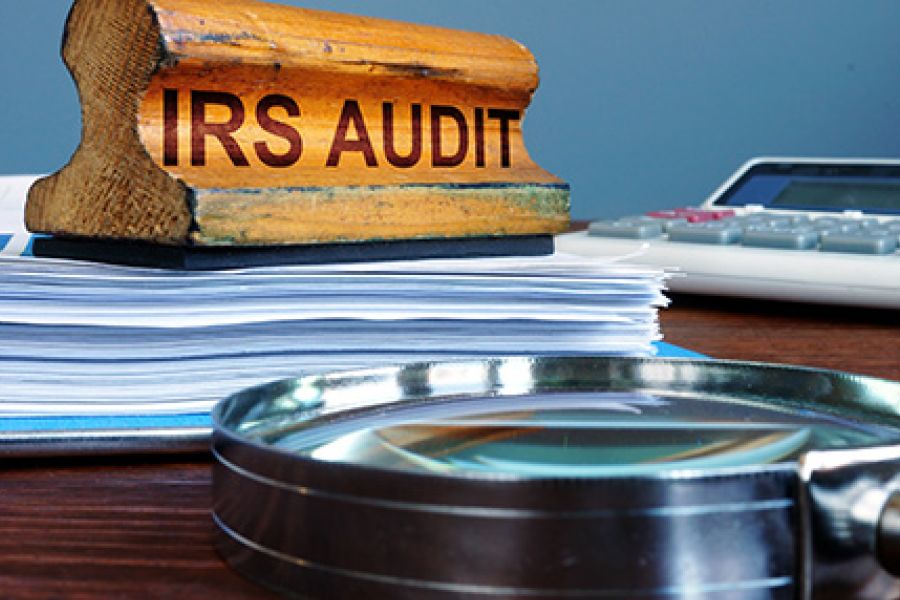These days, most businesses need a website to remain competitive. It’s an easy decision to set one up and maintain it. But determining the proper tax treatment for the costs involved in developing a website isn’t so easy. That's because the IRS hasn’t yet released guidance on business website cost tax treatment. Consequently, you must apply existing guidance on other costs to the issue of website development costs. Hardware and software First, let’s look at the hardware you may need to operate a website. The costs involved fall under the standard rules for depreciable equipment. Specifically, once these assets are up and running, you can deduct 100% of the cost in the first year they’re placed in service (before 2023). This favorable treatment is allowed under the...

Do you want to withdraw cash from your closely held corporation at a low tax cost? The easiest way is to distribute cash as a dividend. However, a dividend distribution isn’t tax-efficient, since it’s taxable to you to the extent of your corporation’s “earnings and profits.” But it’s not deductible by the corporation. Fortunately, there are several alternative methods that may allow you to withdraw cash from a corporation while avoiding dividend treatment. Here are five ideas: (1) Capital repayments To the extent that you’ve capitalized the corporation with debt, including amounts that you’ve advanced to the business, the corporation can repay the debt without the repayment being treated as a dividend. Additionally, interest paid on the debt can be deducted by the corporation. This assumes that the...
If you’re a small business owner or you’re involved in a start-up, you may want to set up a tax-favored retirement plan for yourself and any employees. Several types of plans are eligible for tax advantages. But what is the right retirement plan for your business and it's employees? 401(k) plan One of the best-known retirement plan options is the 401(k) plan. It provides for employer contributions made at the direction of employees. Specifically, the employee elects to have a certain amount of pay deferred and contributed by the employer on his or her behalf to an individual account. Employee contributions can be made on a pretax basis, saving employees current income tax on the amount contributed. Employers may, or may not, provide matching contributions on behalf of...
The use of a company vehicle is a valuable fringe benefit for owners and employees of small businesses. This benefit results in tax deductions for the employer as well as tax breaks for the owners and employees using the cars. (And of course, they get the nontax benefits of driving the cars!) Even better, recent tax law changes and IRS rules make the perk more valuable than before. But what are the tax implications of company cars? Tax implications of company cars: here’s an example Let’s say you’re the owner-employee of a corporation that’s going to provide you with a company car. You need the car to visit customers, meet with vendors and check on suppliers. You expect to drive the car 8,500 miles a year for...
Operating a business as an S corporation may provide many advantages, including limited liability for owners and no double taxation (at least at the federal level). Self-employed people may also be able to lower their exposure to Social Security and Medicare taxes if they structure their businesses as S corps for federal tax purposes. But not all businesses are eligible — and with changes under the Tax Cuts and Jobs Act (TCJA), S corps may not be as appealing as they once were. Should you elect S corporation status? Compare and contrast The main reason why businesses elect S corp status is to obtain the limited liability of a corporation and the ability to pass corporate income, losses, deductions and credits through to shareholders. In other words,...
What should you do if an SSA no-match letter is received by your business? In the past few months, many businesses and employers nationwide have received “no-match” letters from the Social Security Administration (SSA). The purpose of these letters is to alert employers if there’s a discrepancy between the agency’s files and data reported on W-2 forms, which are given to employees and filed with the IRS. Specifically, they point out that an employee’s name and Social Security number (SSN) don’t match the government’s records. According to the SSA, the purpose of the letters is to “advise employers that corrections are needed in order for us to properly post” employees’ earnings to the correct records. If a person’s earnings are missing, the worker may not qualify...
Here are some of the key tax-related deadlines affecting businesses and other employers to add to your Q4 2019 business tax calendar. Keep in mind that this list isn’t all-inclusive, so there may be additional deadlines that apply to you. Contact me to ensure you’re meeting all applicable deadlines and to learn more about the filing requirements. Q4 2019 BUSINESS TAX CALENDAR October 15 If a calendar-year C corporation that filed an automatic six-month extension: File a 2018 income tax return (Form 1120) and pay any tax, interest and penalties due. Make contributions for 2018 to certain employer-sponsored retirement plans. October 31 Report income tax withholding and FICA taxes for third quarter 2019 (Form 941) and pay any tax due. (See exception below under “November 12.”) November 12 Report...
Bitcoin and other forms of virtual currency are gaining popularity. But many businesses, consumers, employees and investors are still confused about how they work and how to report transactions on their federal tax returns. And it has just been announced that the IRS is targeting virtual currencies that are used in business transactions users in a new “educational letter” campaign. The nuts and bolts Unlike cash or credit cards, small businesses generally don’t accept bitcoin payments for routine transactions. However, a growing number of larger retailers — and online businesses — now accept payments. Businesses can also pay employees or independent contractors with virtual currency. The trend is expected to continue, so more small businesses may soon get on board. Bitcoin has an equivalent value in government issued...
Working from home has its perks. Not only can you skip the commute, but you also might be eligible to deduct home office expenses on your tax return. Deductions for these expenses can save you a bundle, if you meet the tax law qualifications. In this Blog Post, the home office deduction is reviewed. Under the Tax Cuts and Jobs Act (TCJA), employees can no longer claim the home office deduction. If, however, you run a business from your home or are otherwise self-employed and use part of your home for business purposes, the home office deduction may still be available to you. If you’re a homeowner and use part of your home for business purposes, you may be entitled to deduct a portion of actual expenses...
The IRS uses Audit Techniques Guides (ATGs) to help IRS examiners get ready for audits. Your business can use the same guides to gain insight into what the IRS is looking for. Many ATGs target specific industries or businesses, such as construction, aerospace, art galleries, child care providers and veterinary medicine. Others address issues that frequently arise in audits, such as executive compensation, passive activity losses and capitalization of tangible property. How IRS "Audit Techniques Guides" are used IRS auditors need to examine all types of businesses, as well as individual taxpayers and tax-exempt organizations. Each type of return might have unique industry issues, business practices and terminology. Before meeting with taxpayers and their advisors, auditors do their homework to understand various industries or issues. Areas such as the...











